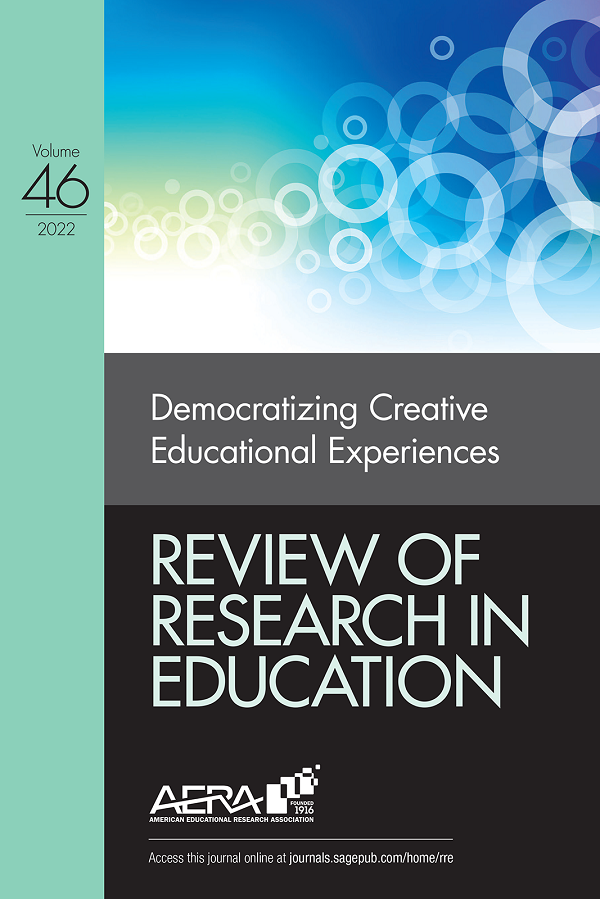(错误)认同:通过黑人专一性的练习,在数学教育研究中重新确立“集体黑人”的认同
IF 2.4
1区 教育学
Q1 EDUCATION & EDUCATIONAL RESEARCH
引用次数: 48
摘要
本章回顾了与黑人儿童有关的数学教育中基于身份的两种研究,以Martin(2000)和Nasir(2002)为例。数学教育中基于身份的研究是一个新兴领域,它正在颠覆围绕数学能力和才华意义的叙事。我们认为,黑人儿童作为数学实干家和数学知识者的身份经常与各种社会身份的刻板印象相混淆(或错误),以及被错误地没收(或错误地获取),以使这些儿童的自卑、犯罪和普遍不可生性的叙事永久化。我们在数学教育研究文献中以黑人儿童为例,认为所谓“集体黑人”中的儿童受到组织数学教学的相同种族脚本的约束。虽然我们承认,基于身份的研究已经出现了重要的线索,以恢复黑人儿童和黑人群体中儿童的合法身份,但我们最后对这篇最近的文献进行了批评,我们在其中注意到对女孩和幼儿的令人不安的排斥。本文章由计算机程序翻译,如有差异,请以英文原文为准。
(Mis)Taken Identities: Reclaiming Identities of the “Collective Black” in Mathematics Education Research Through an Exercise in Black Specificity
This chapter reviews two strands of identity-based research in mathematics education related to Black children, exemplified by Martin (2000) and Nasir (2002). Identity-based research in mathematics education is a burgeoning field that is disrupting narratives around the meanings of mathematical competence and brilliance. We argue that the identities of Black children as doers and knowers of mathematics are often confused (or mistaken) with stereotypical images of various social identities, as well as wrongly confiscated (or mis-taken), in order to perpetuate persistent narratives of inferiority, criminality, and general ineducability of these children. We use Black children as a particular example within the mathematics education research literature and argue that children within a so-called “collective Black” are subject to the same racial scripts that organize mathematics teaching and learning. While we acknowledge that important lines of identity-based research have emerged to reclaim the rightful identities of Black children and those within the collective Black, we conclude with a critique of this recent literature in which we note the troubling exclusion of girls and young children.
求助全文
通过发布文献求助,成功后即可免费获取论文全文。
去求助
来源期刊

Review of Research in Education
EDUCATION & EDUCATIONAL RESEARCH-
CiteScore
15.70
自引率
0.00%
发文量
14
期刊介绍:
Review of Research in Education (RRE), published annually since 1973 (approximately 416 pp./volume year), provides an overview and descriptive analysis of selected topics of relevant research literature through critical and synthesizing essays. Articles are usually solicited for specific RRE issues. There may also be calls for papers. RRE promotes discussion and controversy about research problems in addition to pulling together and summarizing the work in a field.
 求助内容:
求助内容: 应助结果提醒方式:
应助结果提醒方式:


